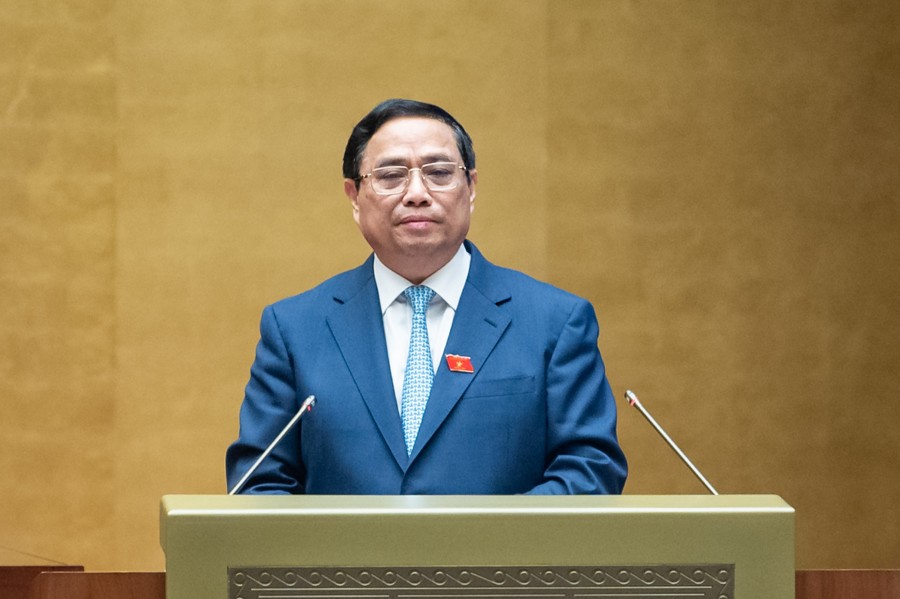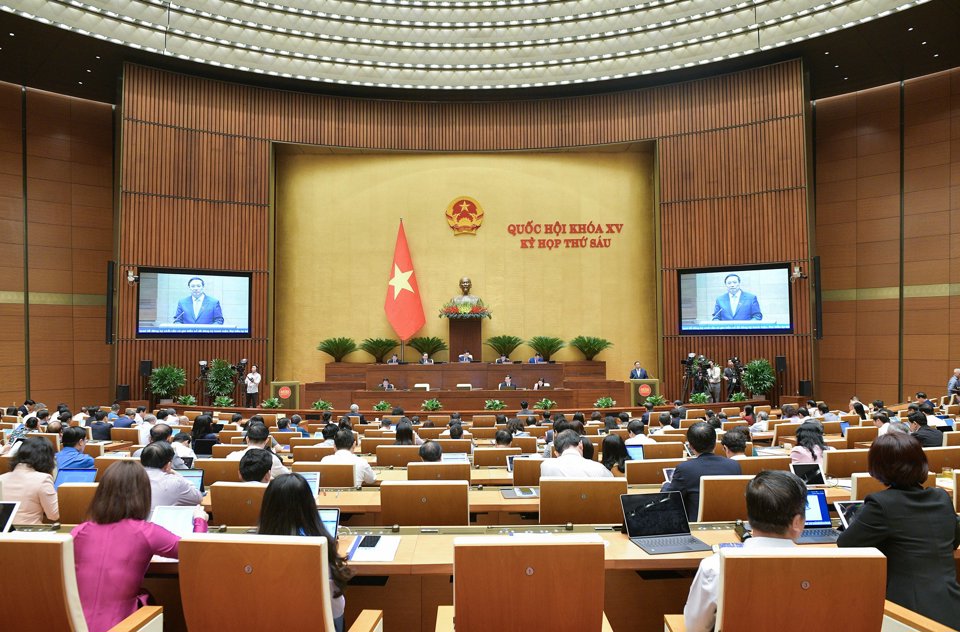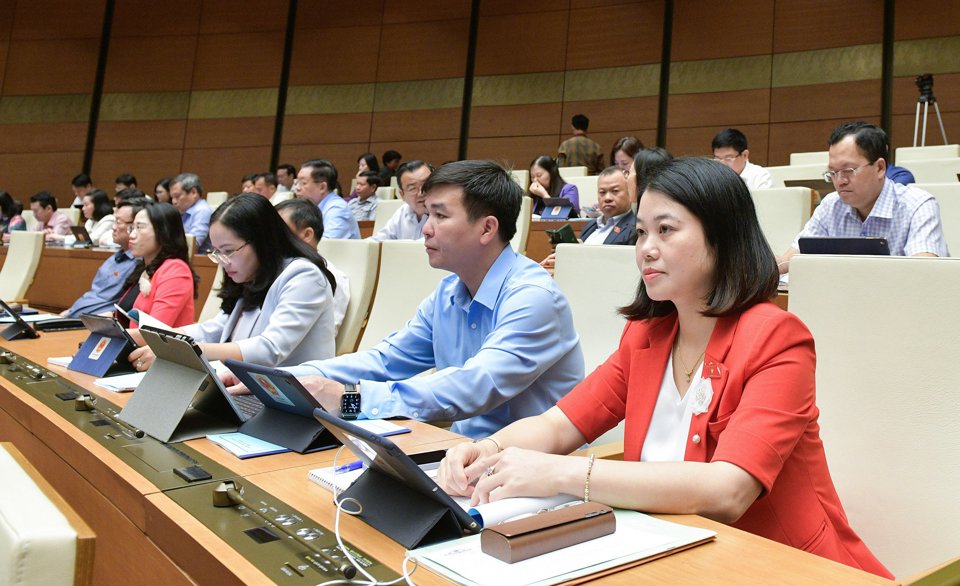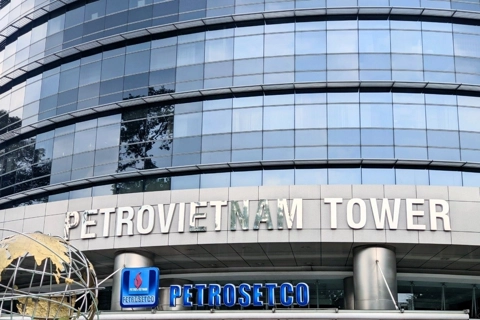Vietnam strives to achieve over 5% GDP growth in 2023: Prime Minister
The Government is prioritizing solutions to boost three main sources of growth: investment, consumption, and exports.
Vietnam aims to achieve a GDP growth rate exceeding 5%, providing impetus for the execution of the 2024 socio-economic development plan, Prime Minister Pham Minh Chinh highlighted the target during a Q&A session at the National Assembly today [November 8].
| Prime Minister Pham Minh Chinh at the Q&A session. Photos: quochoi.vn |
Chinh acknowledged that there are still drawbacks in the socio-economic landscape and that production and business activities continue to face challenges.
Some sectors have experienced a decline in the workforce, particularly with a high youth unemployment rate, while the Central region remains severely affected by natural disasters, storms, floods, and landslides, he added.
The Prime Minister emphasized that the Government is prioritizing solutions to boost three main sources of growth: investment, consumption, and exports.
“It is essential for ministries, agencies, and local authorities to enhance their review and resolution of legal issues, with particular attention to those related to land valuation, housing, land use, real estate, planning, and procurement,” Chinh said.
Furthermore, Chinh noted that decentralization and delegation of authority will be actively promoted to enhance the capacity of local authorities and strengthen the oversight and control of power, thereby fostering accountability among leaders.
He also highlighted the need to improve regulations that encourage and protect civil servants who demonstrate dynamism, creativity, and a willingness to work for the public good, while also taking strict measures against cases of evasion and the shirking of responsibilities.
| Overview of the session. |
Providing an update on economic developments, the Prime Minister reported that inflation remains under control, with the 10-month average of the Consumer Price Index (CPI) increasing by 3.2%. The industrial sector has shown positive signs of recovery, with the Index of Industrial Production (IIP) in October rising 5.5% month-on-month and 4.1% year-on-year. Agricultural exports in the first 10 months of the year reached over $43 billion, with rice alone accounting for nearly $4 billion in revenue with 7.12 million tons.
The trade surplus for the first 10 months exceeded $24.6 billion. Combined registered foreign investment in Vietnam reached nearly $25.8 billion, marking a growth of around 15% over the same period. The disbursement of public investment funds reached over 56.7% of the plan, which is 5.5% higher year-on-year, amounting to more than VND104 trillion (US$4.2 billion) in absolute terms.
Ensuring national energy security
In response to the concerns raised during the socio-economic discussion session regarding energy security, particularly how to prevent a recurrence of the June 2023 electricity shortage, Prime Minister Chinh stated that the government has issued timely and proactive instructions to ensure supplies of electricity, gasoline, and oil.
He emphasized that while energy security is fundamentally guaranteed, there were localized power outages in the North in late May and early June this year, and gasoline shortages last year.
| National Assembly deputies at the session. |
Currently, the total source capacity stands at over 70,000 MW, while the actual demand is approximately 52,000 MW. However, various objective and subjective factors have contributed to localized power outages in the northern region, he noted.
According to Chinh, the primary reason for these shortages is subjective. Specifically, there has been a lack of attention to understanding the situation and developing comprehensive plans for electricity transmission, dispatch, and distribution, as well as investing in the expansion of the electricity transmission and distribution network over a long period.
Dispatching of the power system has shown limitations and inadequacies, and the distribution of power sources among regions has been less than optimal.
“The Government remains committed to ensuring national energy security,” Chinh stressed.
To address the electricity shortage issue, Chinh noted the government has put forward several solutions, including the urgent issuance of a plan to implement the VIII Power Development Plan.
Meanwhile, priority will be given to setting up mechanisms for developing the renewable energy industry, as well as expediting the construction progress of the 500kV line from the central region to the north, particularly at the transmission, dispatch, and distribution phases, he said.
According to Chinh, the government will also introduce a competitive electricity trading market, a direct power trading mechanism, and a framework to encourage the development of self-produced and self-consumed rooftop electricity sources.
“Vietnam will promote a transition to green, clean, and equitable energy in line with international commitments for environmental protection and climate change response,” he concluded.















